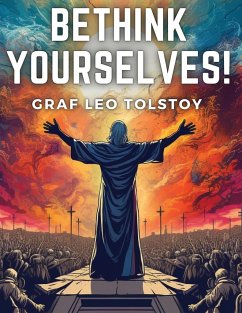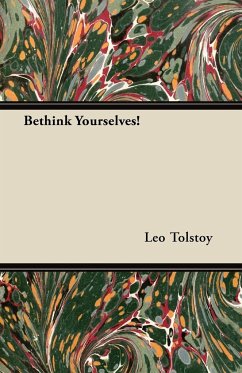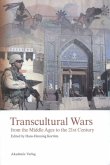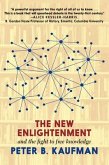"Bethink Yourselves!" is a philosophical and political essay written by the famous Russian author and philosopher Leo Tolstoy. This work was published in 1904 during the Russo-Japanese War, at a time of great social and political upheaval in Russia. In this essay, Tolstoy addresses the moral and ethical implications of war and violence, and he encourages his fellow Russians to reflect on their actions and choices in the midst of this conflict. The central message of "Bethink Yourselves!" is a call for individual and collective introspection. Tolstoy argues that war is a result of a collective failure of conscience and humanity. He criticizes the idea of patriotism and nationalism as contributing to the cycle of violence, and he emphasizes the importance of personal responsibility and nonviolent resistance as a means to achieve peace and social justice. Tolstoy's writing in this essay is deeply reflective and philosophical, and he draws upon his Christian beliefs and principles of nonresistance to evil. He believes that individuals have the power to change the course of history by rejecting violence and embracing love, forgiveness, and nonviolent resistance. "Bethink Yourselves!" had a significant impact on the pacifist and nonviolent movements of the 20th century, and it resonated with many who sought alternatives to war and conflict. Tolstoy's ideas in this essay are not limited to a specific time or place, as they address universal questions about the nature of violence, the role of the individual in society, and the pursuit of peace. Overall, "Bethink Yourselves!" is a thought-provoking and morally charged essay that reflects Leo Tolstoy's commitment to peace and his critique of the destructive forces of war and nationalism. It remains an important work in the history of nonviolent resistance and ethical reflection on the consequences of violence.
Hinweis: Dieser Artikel kann nur an eine deutsche Lieferadresse ausgeliefert werden.
Hinweis: Dieser Artikel kann nur an eine deutsche Lieferadresse ausgeliefert werden.








